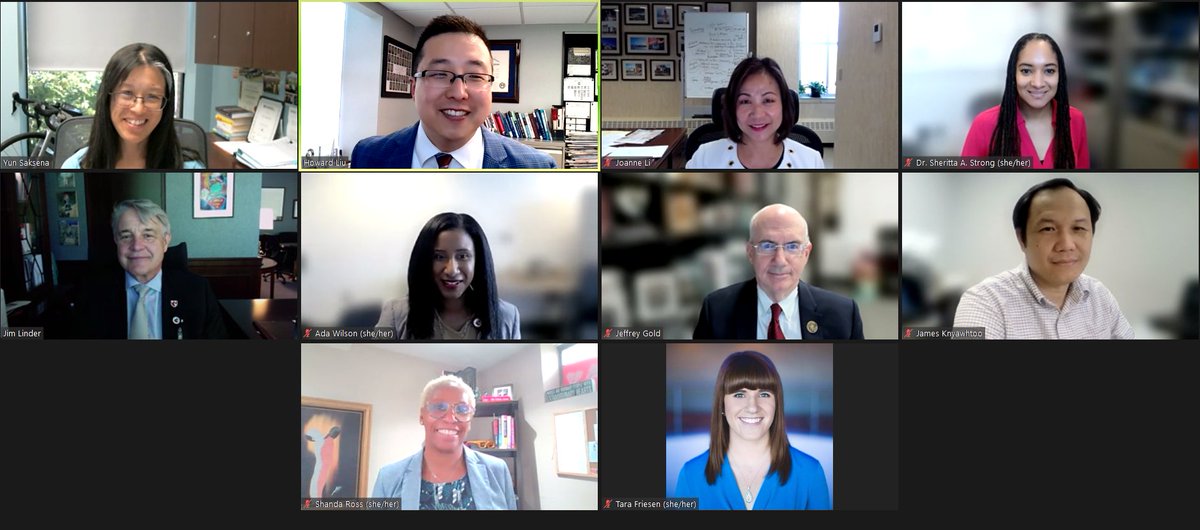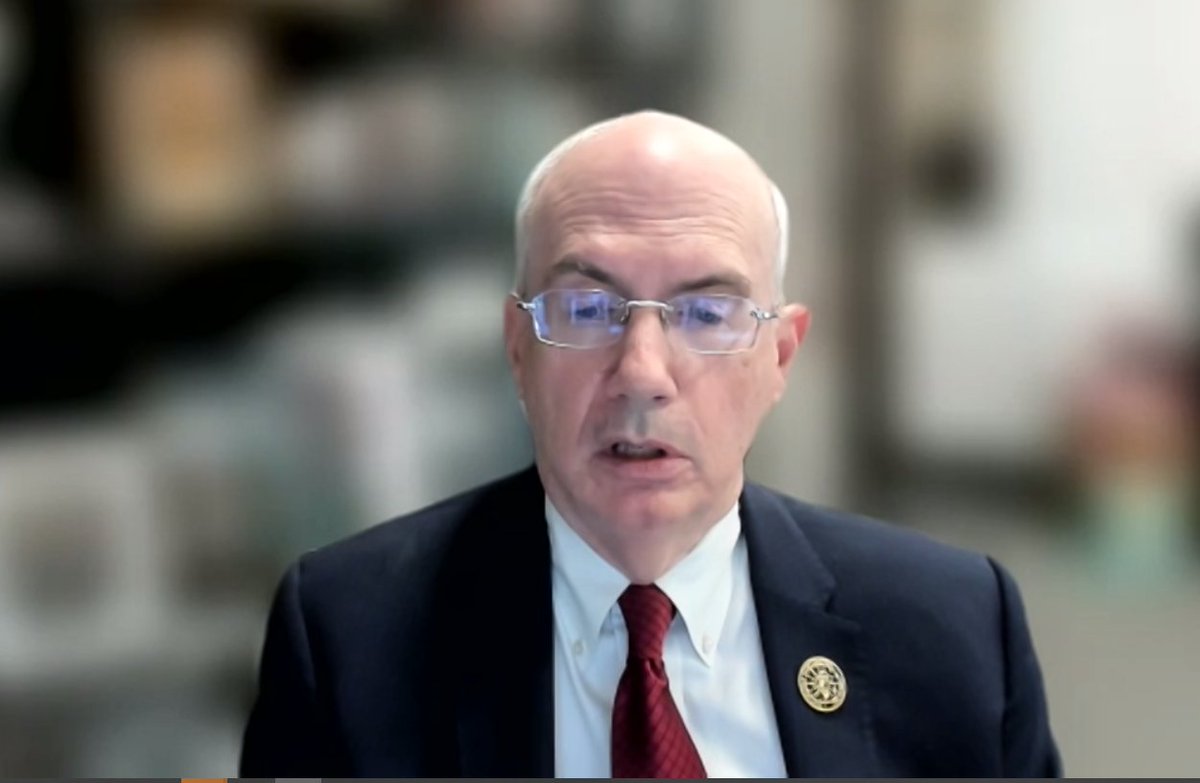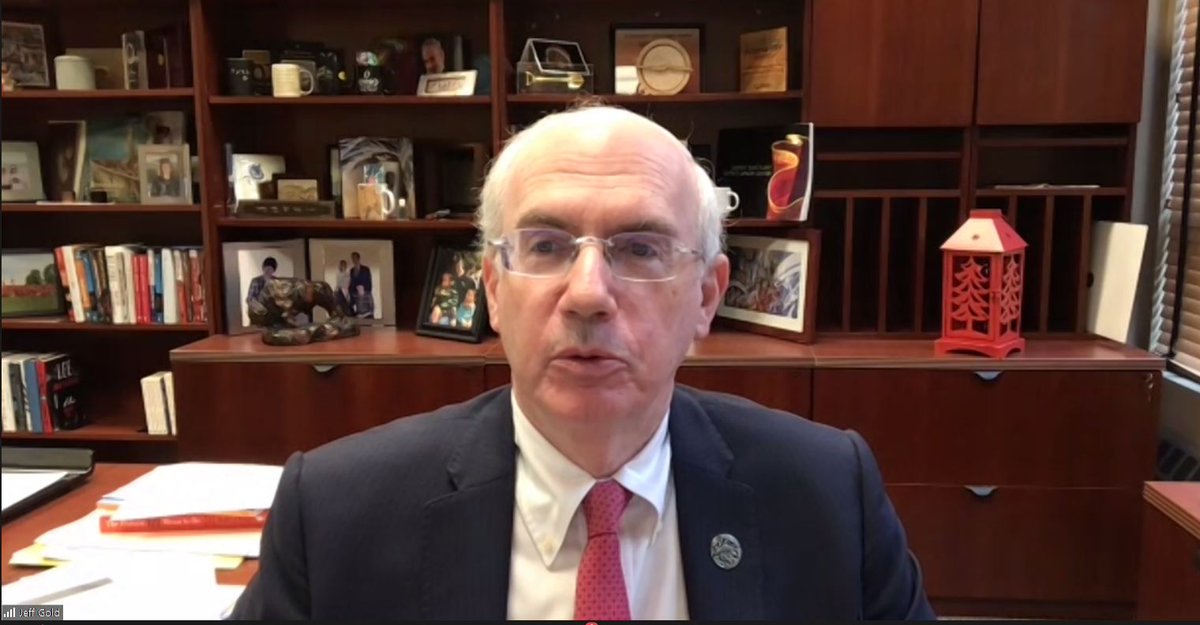
Thrilled to kick off our inaugural #UNMCPsychiatryGR & PM&R joint grand rounds on Stroke Recovery & Rehab: Patient & Physician Perspective.
Appreciate attorney & stroke survivor, John Kindschuh, for his inspiring story! And PM&R chair, Dr Sam Bierner, for stroke best practices!
Appreciate attorney & stroke survivor, John Kindschuh, for his inspiring story! And PM&R chair, Dr Sam Bierner, for stroke best practices!

“My life changed overnight when I had a stroke at age 35. I was throwing up and went to the hospital - they thought I had vertigo. Then they noticed speech changes and I had a craniotomy and spent 2 weeks in the ICU.”
- John Kindschuh young stroke survivor at #UNMCPsychGR
- John Kindschuh young stroke survivor at #UNMCPsychGR

“My stroke was in my cerebellum. It affects my speech & balance. I am able to understand things, read, write & have my memories. I focus on what I can do instead of what I can’t do. I learned to listen more.”
- John Kindschuh at joint #UNMCPsychGR and PM&R GR
- John Kindschuh at joint #UNMCPsychGR and PM&R GR

“One of my clinicians said I wouldn’t ever walk again. I proved them wrong. The first year, I had to think about every step. But now I routinely walk and even run on the track and for stroke benefits.”
- John Kindschuh #UNMCPsychGR cerebellar stroke survivor
- John Kindschuh #UNMCPsychGR cerebellar stroke survivor

“For a long time I wanted to be like everyone else after my stroke. Now, I think that different can be ok.”
- John Kindschuh stroke survivor #UNMCPsychGR
- John Kindschuh stroke survivor #UNMCPsychGR

“The ability to write, run and talk require sequential processing in the cerebellum. There is a lot of traffic between the motor cortex, cerebellum and brainstem.”
- Dr Sam Bierner @smb1dal1, founding chair PM&R @unmc @NebraskaMed @Madonnarehab at #UNMCPsychGR


- Dr Sam Bierner @smb1dal1, founding chair PM&R @unmc @NebraskaMed @Madonnarehab at #UNMCPsychGR



“Function is critical when you are working with stroke survivors. The @WHO domains of function shape our goals to rehabilitate a patient. People should improve or plateau, but not decline. It is key to work with the patient to define goals.”
- Dr Sam Bierner #UNMCPsychGR


- Dr Sam Bierner #UNMCPsychGR



“Young stroke is increasing in incidence - we don’t know why. It seems rare, but I have seen several patients in my practice with young stroke. We must be ready to diagnose and treat it in people younger than age 50.”
- Dr Sam Bierner @unmc @NebraskaMed #UNMCPsychGR
- Dr Sam Bierner @unmc @NebraskaMed #UNMCPsychGR

“People with asymptomatic COVID infection can have a vascular inflammatory process that can increase risk of stroke. I have seen patients suffer a stroke with no other risk factors. Get your booster.”
- Dr Sam Bierner #UNMCPsychGR

- Dr Sam Bierner #UNMCPsychGR


“After my stroke, I experienced that people associate speech with intelligence. A waiter asked me to speak English. Others ask questions to my wife instead of me. Treat people with dignity.”
- John Kindschuh #UNMCPsychGR and PM&R grand rounds
- John Kindschuh #UNMCPsychGR and PM&R grand rounds

“In our society there is a stigma about seeking health. I benefited from mental health specialists after my stroke and continue to do so.”
- John Kindschuh stroke survivor
- John Kindschuh stroke survivor

@threadreaderapp unroll
• • •
Missing some Tweet in this thread? You can try to
force a refresh
























